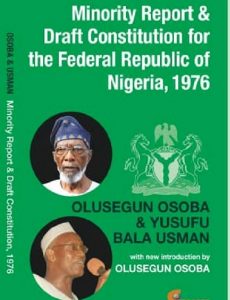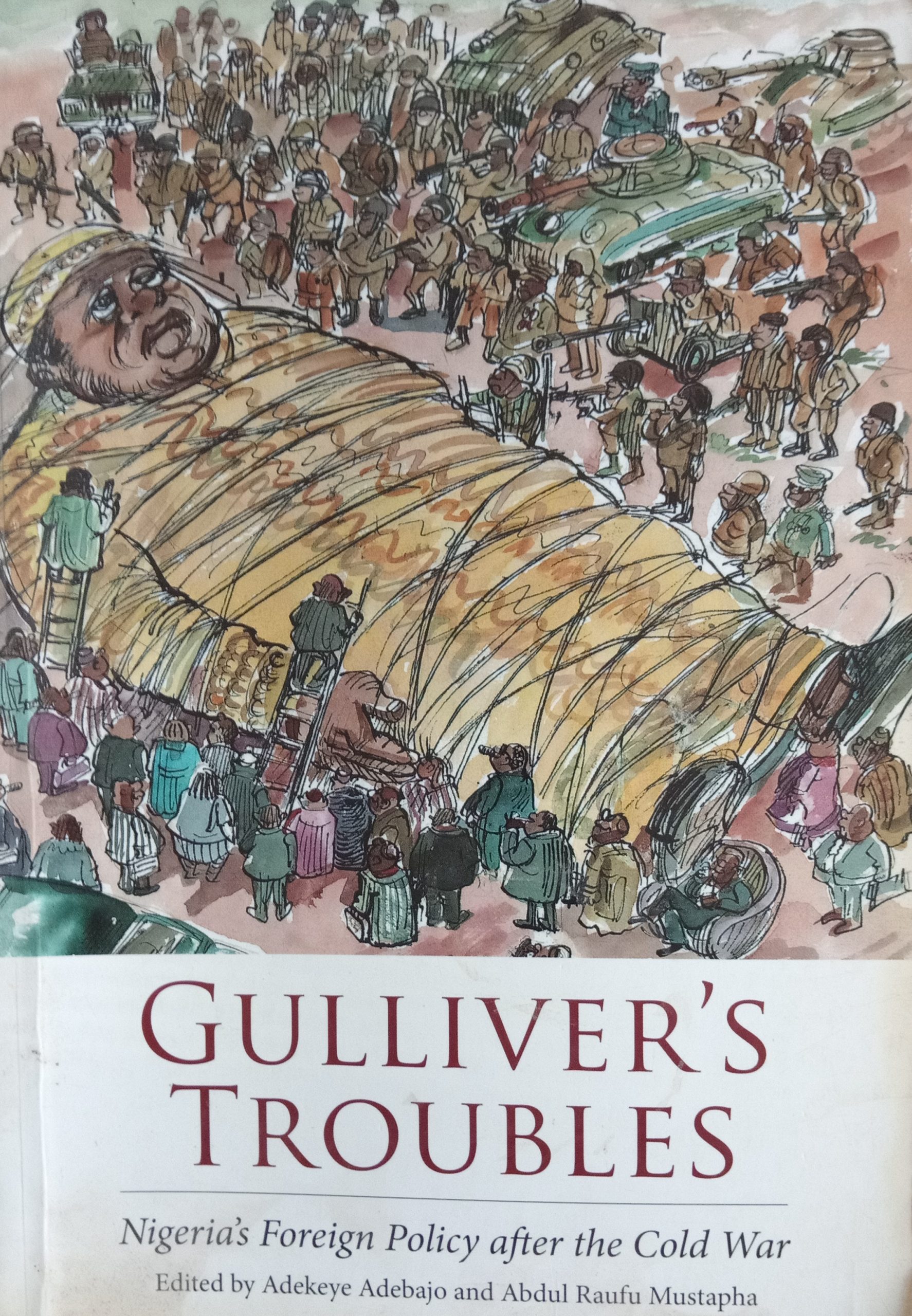By Ambassador Usman Sarki
The preamble of the 1999 Constitution has outlined the aspirational principles of the Nigerian State and its core national interests. They include the attainment of unity and harmony of Nigeria as one indivisible and indissoluble sovereign nation that is dedicated to the promotion of inter-African solidarity, world peace, international cooperation and understanding.
They also include promoting the good government and welfare of all people in Nigeria, on the principles of freedom, equality and justice towards consolidation of the unity of the Nigerian people. These goals are of such a fundamental import that their realisation should warrant the dedication of the entire energy and resolve of Nigerians, as well as the principal instruments or vehicles of their governance, which are the political parties.

Flashback to the Obasanjo factor in Nigerian foreign policy
In effect, we cannot begin to speak about implementing the provisions of the Constitution around the institutions of the state without taking into consideration the specific roles of our political parties. The provisions of the Constitution on the powers of the Federal Republic of Nigeria (both Legislative and Executive) under Part II of Chapter 1 for instance, cannot be realised without the participation of political parties.
These responsibilities of the political parties can cascade down to the realisation of the provisions of Chapter II of the Constitution that established the Fundamental Objectives and Directive Principles of State Policy. Essential in this regard is the capacity of political parties as identifiers, aggregators and mobilizers of public opinion aside from their duties of making legislation while in government.
In this instance, political parties could become the main vehicles by which the idea of sovereignty belonging to the people can be effectively expressed in practical terms. Likewise, it is mainly through political parties that the security and welfare which are said to be the primary purpose of government can be guaranteed.
Along these premises, the main objectives of the national interest and the construction of sound frameworks for Nigeria’s foreign policy can be established with political parties as the main drivers. In this case, it is largely political parties that have the capacity to foster national integration and unity. They could also bring about the adoption of policies on achieving a planned and balanced economic development as envisaged in Chapter 2 that will ensure the equitable distribution of wealth and elimination of corruption, mismanagement and exploitation in the country.

Type of Constitution matters
It is after establishing the political, social and economic foundations of the state that the Constitution addressed the significant aspect of Nigeria’s foreign policy objectives. It is therefore within these parameters that we would like to suggest some lines of action for Nigeria’s political parties to become relevant in the delineation of our national interest and foreign policy endeavours.
The vital role that political parties are supposed to play which is often overlooked is setting the foreign policy agenda for their countries. By this it is meant defining the parameters of the national interest and its determinants from the domestic perspectives and internal aggregation of interests and outlooks. It is no longer tenable to define the national interest along deterministic constructs alone that give no room for innovation or flexibility of approaches.
National interest should be conceived as momentary or incidental factors that are to be considered vital on matters that are of existential nature to the interests of a state or a country at a given moment or period in time. The outbreak of the Coronavirus pandemic and the war in the Ukraine, have dislocated or turned many assumptions upside down, and placed in serious doubts the ability to maintain ideas that have been grounded in individualistic premises of national sovereignty.
The fact that it took virtually the entire world to fight the COVID-19 pandemic and achieve a measure of success after an unprecedented struggle of perception and archetypal beliefs, should make it possible henceforth to adopt a collectivist approach to defining the national interest as opposed to the traditional assertion of the individual national prerogatives.
The role of political parties in effectively realizing such a strategic objective in global health diplomacy can only mean that they have the capacity to enrich the discourse on the national interest further, and contribute effectively to the conduct of foreign policy in their countries. The political parties in Nigeria should therefore not be an exception to this trend. Understanding the nexus between the domestic interests and the foreign policy posture of our country should necessitate a conjunction of views on the direction towards which our efforts should be geared.
Political parties can play this role in a dual capacity namely as part of the executive in the case of the ruling party, as well as in the parliamentary configuration in the case of both the ruling and opposition parties. The enrichment of the discourse can happen at that juncture between the executive and the legislative arms of the government, whereby the domestic opinions and interests can be harmonised and harnessed to the national interest of the country.
Protection of the sovereignty and independence of our country may be idealised constructs that are rooted in our antecedents and struggles against existential threats. These, however, should also be weighed and measured against the consolidation of the positive virtues and factors that make for a strong and viable country. In this instance, they are solely derived from carefully ordered and systematically organised state structures and government institutions.
Without appropriate polices and strong institutional structures in place, it becomes a matter of academic exercise to discourse on the protection of sovereignty and independence while those factors that militate against them are allowed to fester in the loose and fragile organisation of the state and government. The debilitating impacts of corruption for instance, or prolonged violence and insurgency are factors that could lead to the disintegration of states.
Apprehending these detrimental factors in advance and asserting the powers and prerogatives of the state must therefore, be the principal objectives of the political parties in arranging for orderly government in Nigeria. This becomes significant when taken in consideration of the provisions of the National Constitution particularly Chapter 2 that should ideally be the ideological guiding principles of the country and its political parties alike.
The various premises outlined in this Chapter contain the possibilities of making adjustments to our perception about the national interest, and bringing back the discourse to the granular details of the domestic determinants of foreign policy. It is no coincidence therefore, that the Chapter outlined the domestic basis of state policy and the ingredients of our foreign policy and the national interest.
Grounding foreign policy on these premises should provide both the normative frameworks and the principles and purposes that drive our diplomacy as well as what should determine our national interest. Political parties when properly configured as they are now, should necessarily be the active aggregators and disseminators of the kernels of Nigeria’s foreign policy and the identifiers of what the national interest should be on all our behalf.




























